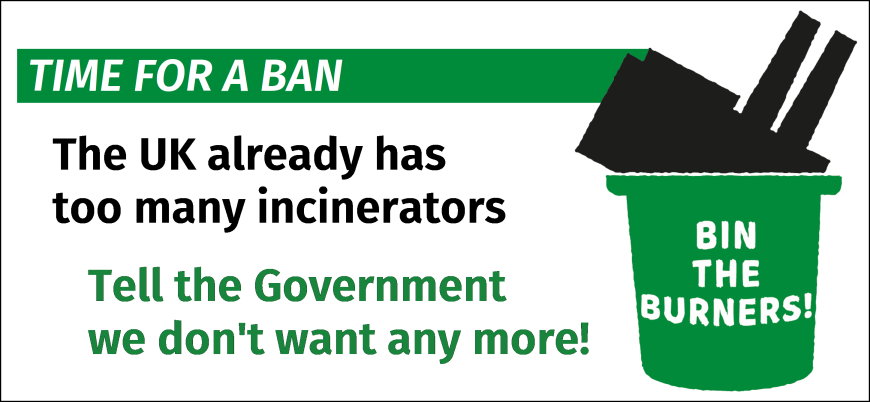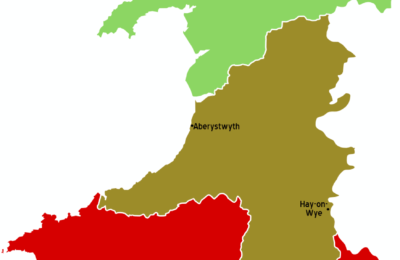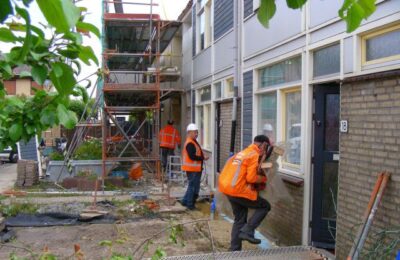An important and detailed update from UKWIN- The UK Without Incineration Network.
This is a campaign we would urge RGL supporters to get behind.

Thanks for your ongoing interest in the anti-incineration campaign. It may have been a while since you heard from UKWIN, unless you joined the UKWIN Discussion Group (which averages around 150 posts a month) or visited our Facebook page at: https://www.facebook.com/UKWIN.Network
Since the Dispatches programme aired in March – see Guardian article at: https://www.theguardian.com/environment/2021/mar/07/revealed-why-hundreds-of-thousands-of-tonnes-of-recycling-are-going-up-in-smoke – thousands of email messages were sent to decision-makers calling for a moratorium on new waste incineration capacity. The general basis of this call is set out within UKWIN’s Policy Suggestions for England’s Green Recovery available at https://ukwin.org.uk/policy/
I’m sending this email to provide an update on this campaign across the UK (with more information available upon request). At the end of this message we also include information on updates to the UKWIN website and what you can do to get more involved.
England
The UK Government told us on the 11th of May 2021 that:
“On the issue of a moratorium on new EfW capacity in England, we will revisit our waste projections over coming months to help understand future residual waste infrastructure capacity needs, taking account of waste prevention measures, our high recycling ambitions and municipal waste landfill reduction goals. This capacity analysis will also help us to further develop our preferred options for residual waste treatment as we move towards a circular economy and focus on delivering our net zero ambitions.”
In response to this statement, and to other statements the UK Government has sent in response to the call for a moratorium, UKWIN wrote back to Defra last Wednesday with a series of questions (as follows):
1. What is the Government intending to do to address two known market failures relating to incineration and MBT-Landfill which Defra identified a decade ago in 2011 as leading to excess waste generation and sub-optimal decision-making?
2. How will the Government ensure that the EPR scheme reflects the full costs to society of incineration while preventing perverse incentives for councils to incinerate?
3. Has the Government considered the benefits associated with an immediate moratorium on new waste incineration capacity would have on current Council contract renegotiations?
4. How will the Government ensure that new and renegotiated waste contracts support any future increases in recycling and waste prevention ambitions whilst prioritising the top tiers of the waste hierarchy rather than repeating the same sorts of inflexibilities which have proved problematic with extant waste contracts?
5. Does the Government intend for the Environment Agency be given the power to refuse to issue Environmental Permits due to significant adverse climate change impact, or does the Government intend to withdraw or amend their assertion that the Environment Agency will not issue an Environmental Permit if the proposed plant will have a significant (adverse) impact on the environment?
6. Can the Government confirm that their assessment of incineration capacity will take account of (a) all capacity which is operational, in late stage commissioning, or under construction; (b) capacity which has planning consent and/or an Environmental Permit but has not yet entered construction; (c) the impact of dewatering to produce RDF on future capacity; (d) how decreases in calorific value (CV) due to reduced plastic can increase the effective capacity of existing incinerators; and (e) the benefits of allowing for future increases in recycling and minimisation beyond those already planned?
7. Will the Government arrange a meeting with UKWIN to discuss the details of the Government’s updated capacity analysis and the work to further develop preferred options for residual waste treatment?
2. How will the Government ensure that the EPR scheme reflects the full costs to society of incineration while preventing perverse incentives for councils to incinerate?
3. Has the Government considered the benefits associated with an immediate moratorium on new waste incineration capacity would have on current Council contract renegotiations?
4. How will the Government ensure that new and renegotiated waste contracts support any future increases in recycling and waste prevention ambitions whilst prioritising the top tiers of the waste hierarchy rather than repeating the same sorts of inflexibilities which have proved problematic with extant waste contracts?
5. Does the Government intend for the Environment Agency be given the power to refuse to issue Environmental Permits due to significant adverse climate change impact, or does the Government intend to withdraw or amend their assertion that the Environment Agency will not issue an Environmental Permit if the proposed plant will have a significant (adverse) impact on the environment?
6. Can the Government confirm that their assessment of incineration capacity will take account of (a) all capacity which is operational, in late stage commissioning, or under construction; (b) capacity which has planning consent and/or an Environmental Permit but has not yet entered construction; (c) the impact of dewatering to produce RDF on future capacity; (d) how decreases in calorific value (CV) due to reduced plastic can increase the effective capacity of existing incinerators; and (e) the benefits of allowing for future increases in recycling and minimisation beyond those already planned?
7. Will the Government arrange a meeting with UKWIN to discuss the details of the Government’s updated capacity analysis and the work to further develop preferred options for residual waste treatment?
See https://ukwin.org.uk/files/pdf/UKWIN_response_to_UK_Government_moratorium_letters_May_2021.pdf for the full 5-page response from UKWIN.
Wales
Great news from Wales, who as noted at https://www.letsrecycle.com/news/latest-news/wales-outlines-plans-for-efw-moratorium announced and then implemented a moratorium on new waste incineration capacity. While this is not an absolute moratorium, it is a big step forwards and helps set a very helpful precedent for the whole of the UK. See https://www.letsrecycle.com/news/latest-news/wales-outlines-plans-for-efw-moratorium/ for an example of the news coverage of the moratorium.
On the 13th of May 2021 the Welsh Government wrote to us with about their moratorium, stating:
“Thank you for your letter of 18 March regarding energy from waste plants. Our circular economy strategy Beyond Recycling published on 2 March includes a commitment to ‘place a moratorium on any future large scale energy from waste developments, as the increase in recycling and reduction in waste we have delivered in Wales means we will not need any new infrastructure of this type to deal with the quantity of residual waste we generate’. A copy of the full strategy can be found at: https://gov.wales/beyond-recycling-0
Further information on the moratorium is included in my Written Statement ‘Taking action to make the circular economy a reality’ published on 24 March which is available at: https://gov.wales/written-statement-taking-action-make-circular-economy-reality. A strategic assessment for the future need for energy from waste capacity for Wales has been published here: https://gov.wales/strategic-assessment-future-need-energy-waste-capacity-wales “
Scotland
The Scottish Government wrote to UKWIN on the 1st of April 2021. In their letter, they stated:
“Scottish Ministers are fully committed to ending the…practice of sending biodegradable municipal waste to landfill by 2025…We are working with local authorities to ensure that alternative treatment capacity is matched to future demand, including expected progress on reducing waste and increasing recycling”.
UKWIN wrote back to Scottish Government on the 9th of April and noted the in December 2020 the Committee on Climate Change (CCC) published their report ‘Policies for the Sixth Carbon Budget and Net Zero’ and stated that: “Key policy changes needed: …Banning biodegradable waste from landfill from 2025 is a priority, and should be achieved via prevention, reuse and recycling, not via more energy-from-waste” (emphasis added) and “An expansion in Scottish EfW capacity occurred ahead of their original 2021 biodegradable municipal waste ban date, and a repeat of this should be avoided (across the UK), due to the risk of locking-in increased EfW fossil emissions” (emphasis added)”. We have yet to receive a response. More quotes from the CCC can be found in the UKWIN quote bank at https://ukwin.org.uk/quotes/
As reported at https://www.letsrecycle.com/news/latest-news/scottish-parties-unveil-waste-policies/ the issue of incineration featured in the waste policies of many political parties. The party which won the election was the Scottish National Party (SNP). The SNP’s 2021 Manifesto from the 15th of April 2021 stated: “As we build Scotland’s circular economy we must concentrate our efforts on reducing, recycling and reusing resources. With this and our world leading climate change targets in mind, we commit to reviewing the role that incineration plays in Scotland’s waste hierarchy.”
Northern Ireland
UKWIN wrote to the Environment Minister and others on the 23rd of March 2021. They responded on the 29th of March stating:
“Whilst energy recovery can be necessary in certain circumstances, DAERA is committed to applying the waste hierarchy in accordance with Article 4 of the Waste Framework Directive. Where waste cannot be prevented, reuse should be encouraged. If reuse is not suitable or the item has reached the end of its useful life, recycling should be undertaken. Only once these options have been exhausted should energy recovery or landfill be considered” but noted that “…there are no plans for a moratorium on waste incineration capacity in Northern Ireland at present.”
Questions about whether more incineration capacity was needed given recycling and waste minimisation ambitions were the subject to debate at the NI Assembly on the 18th of May, which focussed on opposition to Arc21’s proposed the Hightown incinerator. As part of the debate it was noted that the Department of Agriculture, Environment and Rural Affairs (DAERA) had been asked to for an update on a statement of need for more incineration capacity in Northern Ireland. See https://www.theyworkforyou.com/ni/?id=2021-05-18.7.1 for the debate transcript, which includes much praise for local anti-incineration campaigns and campaigners.
Updates to the UKWIN website
UKWIN continues to track incinerator proposals via our map and table at https://ukwin.org.uk/incinerators/ and we have now added the operator’s 2020 Annual Performance Reports for existing plants. Let us know of any further updates to the map.
We have updated the facts page at https://ukwin.org.uk/facts/#incinerationcapacity to show the December 2020 capacity which is based on Tolvik’s report available from https://www.tolvik.com/wp-content/uploads/2021/05/Tolvik-UK-EfW-Statistics-2020-Report_Published-May-2021.pdf – this shows that total capacity existing, in commissioning and under construction rose from 18.50mtpa in 2019 to 20.20mtpa in 2020.
We have also updated the ‘act locally’ page https://ukwin.org.uk/act-locally/ to make it easier to link to specific sections
We have updated the ‘why oppose’ page at https://ukwin.org.uk/oppose-incineration/#badneighbours to highlight examples of how incinerators (and their operators) can be bad neighbours.
We have updated the quote bank at https://ukwin.org.uk/quotes/ to add new quotes (including from the Committee on Climate Change) and to add a ‘Copy to clipboard’ link for all of the quotes.
Opportunities to get more involved
Anti-incineration campaigners wanting to get more involved in the network can join the UKWIN Discussion Group at https://groups.io/g/UKWIN/
While the discussion groups is quite active, we also provide guidance on how people can manage the number of emails they receive (e.g. so they get a weekly digest, are only notified of the first message in a thread, or so that they just access the discussions via the website).
If you have time and energy to volunteer to do work for UKWIN to support the national network then please get in touch as there is all help is gratefully appreciated.


